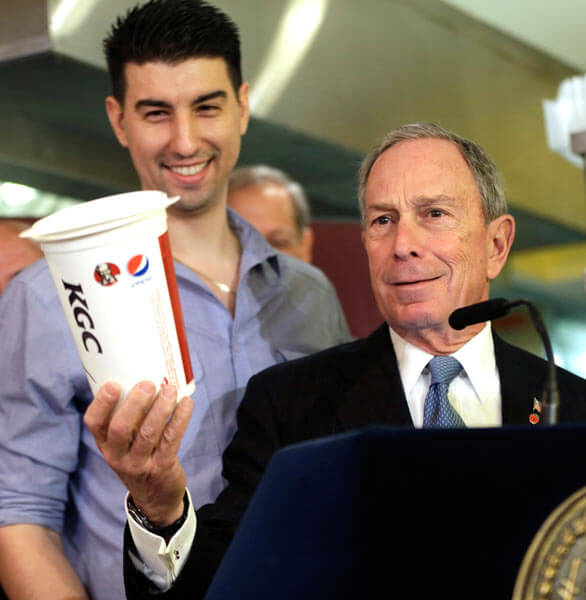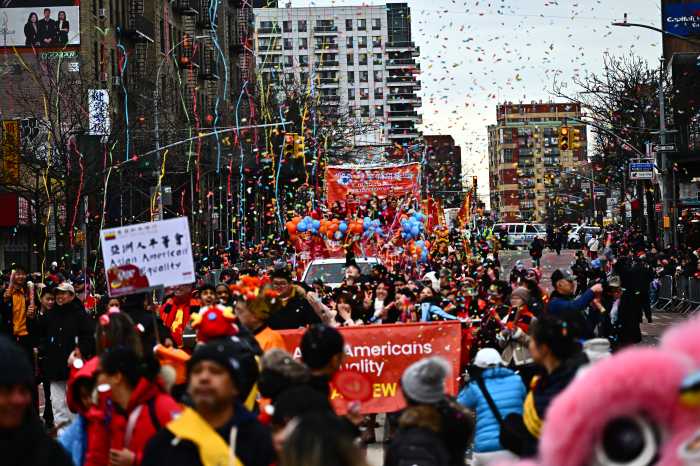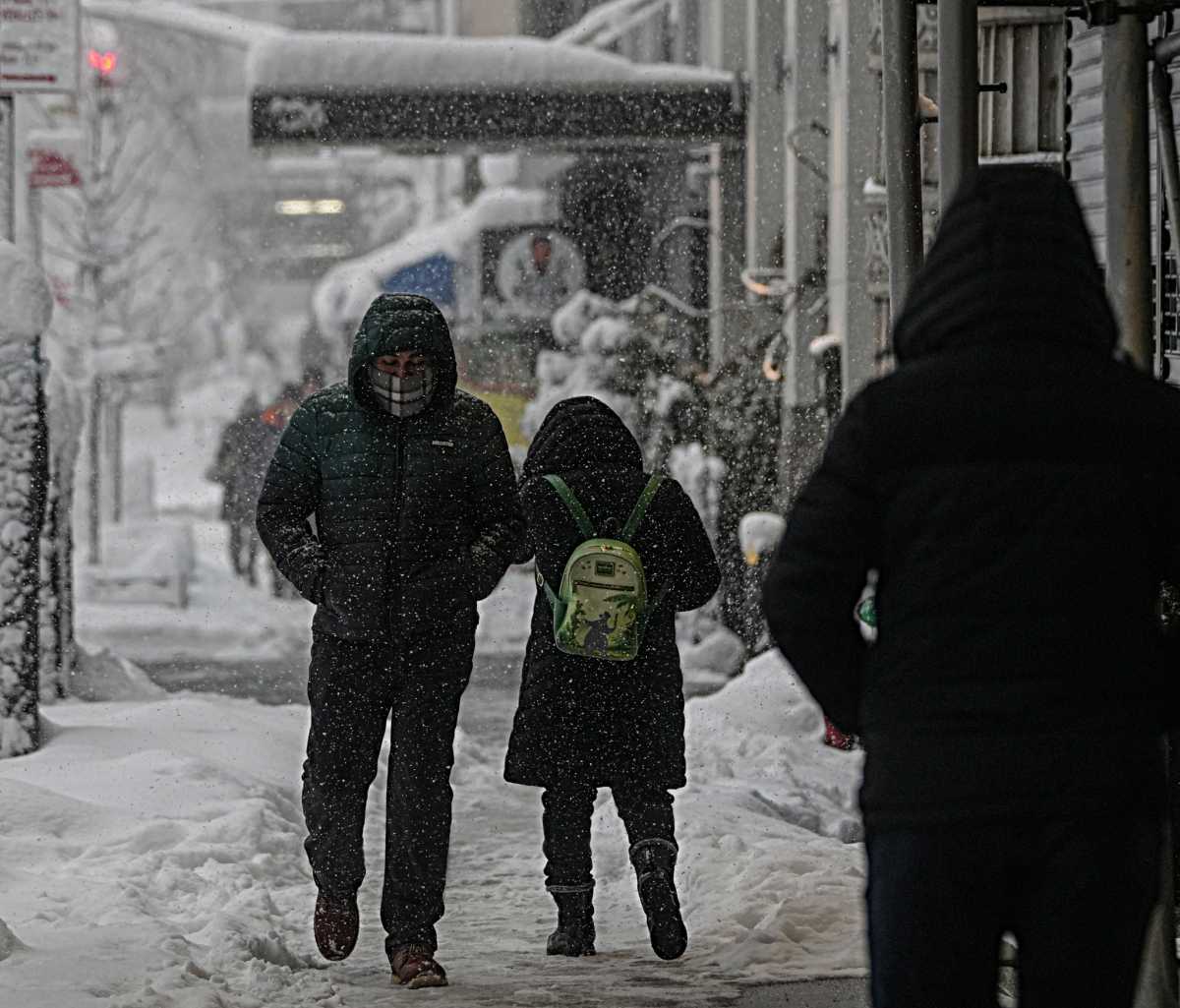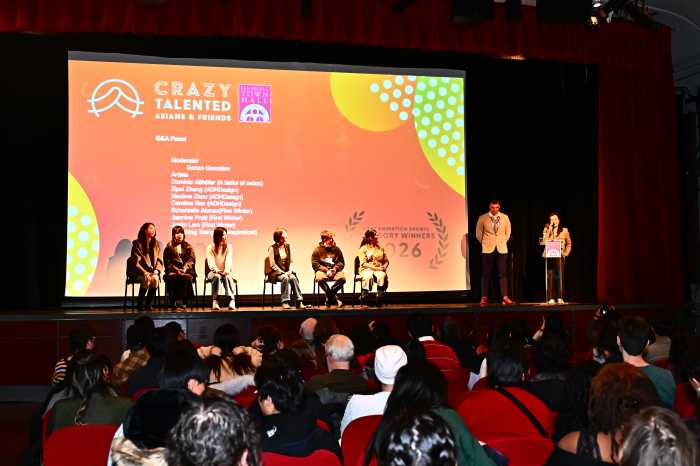By Karen Frantz
Soon after a judge struck down the so-called soda ban Monday — just a day before the new rule was expected to go into effect — some in Queens’s restaurant community said they supported the court’s decision and railed against the ban.
“It’s a victory for no government intervention,” said Jerry Ambrose, who has been a bartender at Union Jack, at 39-40 Bell Blvd., for more than 10 years.
He said the restaurant would not be affected by the rule because it does not sell sugary drinks in bottles or cans and it does not have glasses that serve amounts larger than 16 ounces. But he spoke out against what he called government intrusion, from the thwarted soda rule to a city ban against smoking in public, saying it has gotten out of hand and that people should be free to make their own decisions.
“They’re beating us up. We should all rebel,” he said.
Mayor Michael Bloomberg quickly appealed the ruling by State Supreme Court Justice Milton Tingling Jr. in Manhattan, who struck down the ban on the grounds that it was “arbitrary and capricious.”
Nobu Topten, manager of A&J Pizza, at 71-37 Austin St. in Forest Hills, said he did not think a limit on soda sizes would be an effective way to lower people’s sugar intake.
“I don’t think you can really stop people,” he said. “People love to eat and drink.”
He said he expected most consumers would go ahead and order two 16-ounce drinks if they could not order a supersized drink. But he said he was worried that if the ban went into effect, he would take hits on sales of 2-liter bottles of regular soda, saying if people were having a party the larger bottles made more sense.
“If you have 20 people, you’d have to get 20 cans,” he said.
He said although the ban was struck down, he was still waiting to see what would happen on appeal before restocking with larger regular soda bottles.
Jose Moran, who works at Top Hot Bagels & Grill Deli, at 40-18 Bell Blvd., also said he would have been affected by the ban. He said before the court’s ruling he did not know what the deli would do with a number of 20-ounce sodas it still had in stock.
But one thing he did know was that it would not have sold them for fear of getting slapped with a $200 fine.
He said he supported the court’s ruling.
“That’s a good idea,” he said.
Carol Vides, manager at Mexican Cafe, at 72-05 Austin St., said she was in support of the ban, however.
“I’m not a fan of sugary drinks, especially for kids,” she said, pointing to sugar’s negative health effects.
She said in particular she thought free refills lead to people consuming too much sugar and said customers having to pay for the extra soda they drink would serve as a good deterrent. The soda rule does not prohibit free refills.
She said her restaurant does not allow free refills and only serves soda in small glasses, although it was not a policy she put into place.
Like many members of Queens’ food industry, several Queens elected officials reacted with praise to the court’s decision.
“It’s absolutely the correct ruling,” said City Councilman Dan Halloran (R-Whitestone), who has been a vocal opponent of the soda rule and joined an amicus brief against it.
“I will work with my colleagues in the City Council to make sure a law like this never passes again,” he vowed. “It has been a waste of time and resources.”
State Sen. Tony Avella (D-Bayside) also applauded the ruling.
“While I agree that something must be done to address the growing obesity problem in this city and that this policy derives from those good intentions, I believe this ban just went too far,” he said.
The mayor, who has championed the ban, told a news conference Monday evening that he was confident the soda rule, which is the first of its kind, would ultimately be upheld on appeal.
“Being the first to do something is never easy,” he said.
He also contended the rule would help save lives because sugary drink consumption is linked to obesity, a risk factor for disease and premature death.
“Obesity kills, there’s just no question about it,” he said.
The soda rule would have limited the size of sugary drinks to 16 ounces in any city establishment needing a city Department of Health grade, including restaurants, movie theaters and sports arenas, but not other venues such as 7-Elevens. It would also not have applied to alcoholic drinks, fruit juice or milk-based beverages.
Tingling wrote in his opinion that the rule applied unevenly to city venues, prohibited sale of some large sugary drinks but not others and the many loopholes built into the rule, such as no limitations on refills, defeated its purpose.
“It is arbitrary and capricious because it applies to some but not all food establishments in the city,” he wrote.
He also wrote that the rule would “eviscerate” the separation of powers doctrine, creating an “administrative Leviathan.”
“Such an evisceration has the potential to be more troubling than sugar-sweetened beverages,” he wrote.
Reach reporter Karen Frantz by e-mail at kfrantz@cnglocal.com or by phone at 718-260-4538.

































